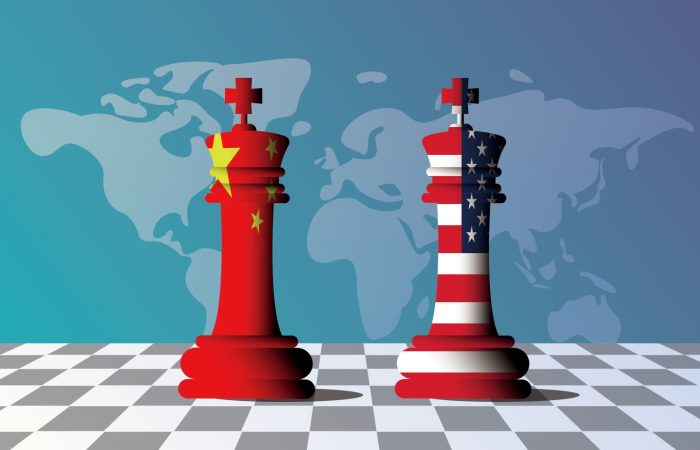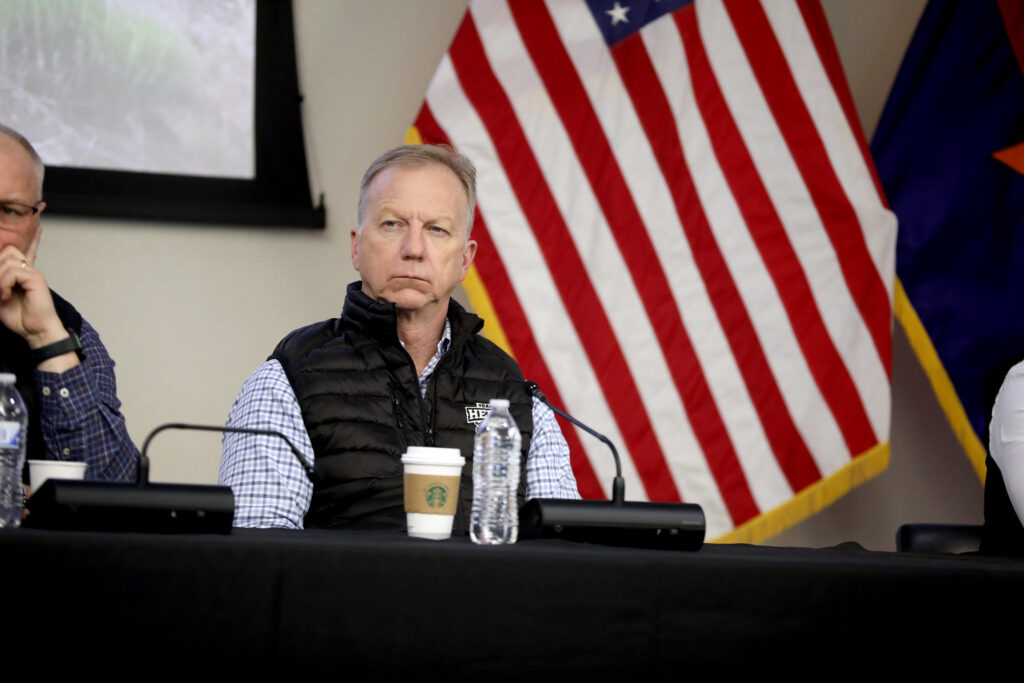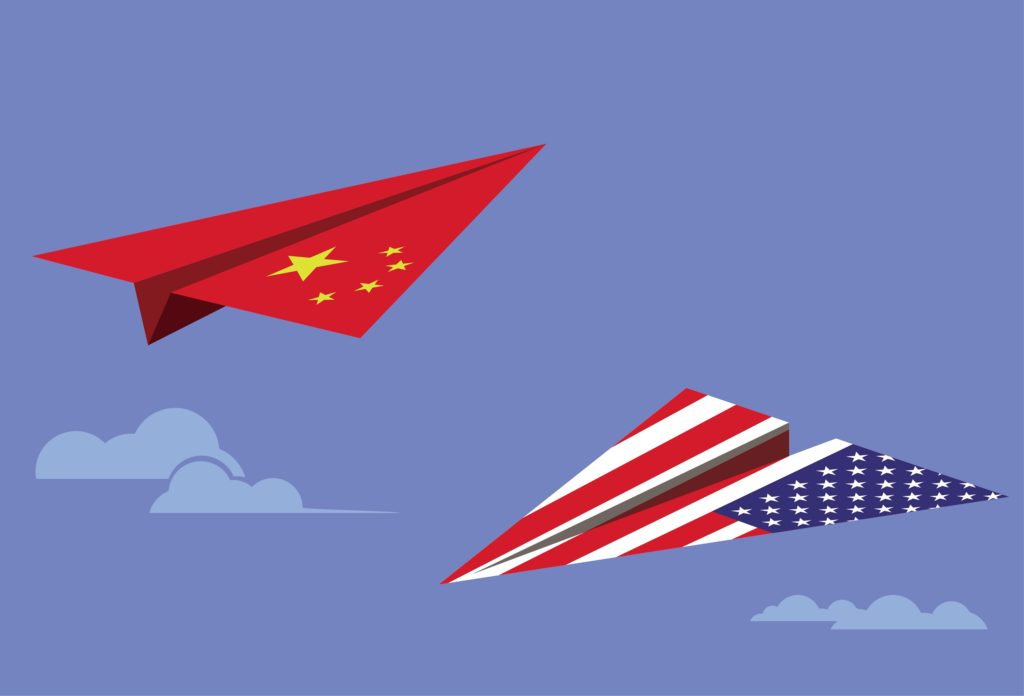On January 19, the Brookings John L. Thornton China Center and Pax sapiens co-hosted an event titled “Navigating the uncertainties of US-China relations over the next decade.” The event had two parts. First, Dr. Betty Sue Flowers (professor at Texas University), and Mr. Conor Seyle (Vice President at Pax sapiens), introduced their scenario project related to the U.S.-China Relations. Second, Mr. Ryan Hass (Director of Brookings’ China Center), moderated the panelists discussion session. The panelists include Mr. Conor Seyle, Mr. Dennis Wilder, (adjunct professor at Georgetown University), Mr. Ren Libo (Founder of Grandview Institution), and Dr. Patricia Kim (Fellow at Brookings’ China Center).
Mr. Seyle started the presentation by introducing the mission of the project “Scenarios for US-CHINA Relations and their impact on the global order to 2035.” Due to the importance of the U.S.-China relations to the global order and the complexity of this bilateral relationship, the purpose of this project is to reveal the future scenarios that might happen in the U.S.-China relationship. In addition, as Mr. Seyle stated, scenarios as a tool help the policy community and public to prepare for the possible challenges that the U.S. and China would encounter.
Dr. Betty Sue Flowers then briefly introduced the methodology of the project, listed in four steps: Selecting the Team, Interviewing Participants & Experts, Generating Scenarios Elements, and Creating the Scenarios. In addition, she emphasized that “scenarios are not forecasts or policy recommendations but are situations that could happen.” Subsequently, Mr. Seyle summarized two important findings of the project. First, the experts of this project reached a consensus about four possible scenarios of U.S.-China relations: Drift (contesting with communication), War (directly confronting militarily), Networks (bilaterally decoupled but remaining embedded in engagement), and Blocs (decoupling, leading to the creation of blocs with little bilateral engagement). Second, there are five major themes emphasized in the project: 1) deep mutual mistrust, 2) differing approaches to engagement, 3) persistent misunderstanding, 4) a Taiwan Strait crisis, and 5) domestic politics.
Followed by the presentation of the scenario project, Director Hass asked each panelist to discuss how to analyze the current U.S.-China relationship and what method they would use to do so. Mr. Seyle, as a trained political psychologist, mentioned two points. First, to address the systematic challenge like the U.S.-China relationship, understanding the end goals of the two countries is critical for the assessment of those challenges. Second, in disaster situations, when the risk is driven by individual level behavior, there is a resistance against change of action until the scope of the disaster becomes conceivable. He further supplemented that the changing of individual behavior vis-a-vis the self-evidenced disaster is rapid; for instance, as West African conflict and climate change has been.
As a former CIA official and current senior policy fellow, Mr. Dennis Wilder applied the U.S. intelligence system’s structured analytical technique of complex challenges to his review. In order to provide insightful analysis for the U.S. president, the intelligence community tends to focus on the key variables, which then drives the future scenario. In the case of U.S.-China relations, Mr. Wilder argued, there are four independent variables: 1) the Chinese economy, 2) the cohesion of Chinese leadership, 3) the People’s Liberation Army, and 4) the strategic vision of President Xi Jinping. After identifying these variables, the intelligence community would assess the correlated action’s impact on these variables. He illustrated this by giving the hypothetical question: “What would China have replaced limited retaliation by lunch warning strategy, if China would have developed a new nuclear strategy?” On the other hand, Mr. Wilder also mentioned the impact of U.S. policy or action on these variables. For instance, he wondered whether security advisor Jack Sullivian’s “small yard, high fence” approach may have a meaningful effect on China’s military modernization.
Then, Mr. Ren Libo mentioned two analytical consensus points among the Chinese think tank and policy communities. First, the coexistence of limited competition and limited engagement will be a perpetual status of future U.S.-China relations. Second, compared with the U.S., it is perceived that China holds a more flexible and optimistic attitude toward the U.S.-China relationship.
Finally, Dr. Patricia Kim summarized her findings of the orientation of China’s foreign policy, identifying three critical drivers. First is Beijing’s core interests, like the authority of Communist Party of China (CPC), territorial sovereignty, and economic prosperity. Second is to push against the containment from the U.S. and counterbalance the United States’ alliance system by seeking partnership. Third is the quest for regional leadership or influence. However, as Dr. Kim argued, those goals varied throughout the period of leadership’s changing.
The second question Director Hass posed for the panelists was the United States’ and China’s courses for their foreign policy towards each other. Mr. Wilder first pointed out three immutable missions that the future Chinese leadership continues to follow: 1) the goal of national rejuvenation, 2) the eventual reunification with Taiwan, and 3) the continued rule of the CPC. However, as Mr. Wilder argued, China’s foreign policy will evolve over time because of domestic leadership’s different understandings of China’s interests.
On the other hand, Mr. Ren, speaking as a Chinese citizen, gave his perception of the United States’ position in the U.S.-China relationship. First, he said the U.S. is worried about the structural uncertainty due to the rise of China in multiple areas like economic influence and defense capability. Second, he said “from the Chinese perspective, the U.S. perceived the international system as a zero-sum game.” Last, he agreed with Mr. Wilder’s opinion about China’s changing foreign policy. For instance, he pointed out the signal conveyed by the documents of the recent central meeting of foreign relations on January 16 was that China’s foreign policy was becoming more inclusive, open and subjective.
After these two discussions, Director Hass posed an interesting question related to the Scenario Project: “Among these potential scenarios, why would there be no cooperation between the U.S. and China?” Mr. Seyle answered that it will be an unhonest idea due to the nature of the U.S.-China relationship, which will be a consistent competition. To follow that question, Director Hass asked other panelists to discuss what kind of relationship the U.S. or China do want so as to maximize their interests. Mr. Wilder first brought out four pillars of the United States’ foreign policy—hedging against China, holding the Taiwan policy, protecting against China’s theft of United States’ cutting-edge emerging technology, and also cooperation for mutual interest like climate change, public health and global south’s development—while Mr. Ren described how China perceives the U.S.-China relations in a way that maximizes its interest—mutual political trust, mutual economic cooperation, mutual military dialogue, and cultural exchange. In addition, Mr. Ren emphasized bilateral cultural communication and suggested that “no matter how U.S.-China relations deteriorate in the future, the people to people cultural exchange should be maintained by both sides.”
To close the event, the panelists provided their prediction of the U.S.-China relationship over the next decade. Two consensus were reached during the discussion. The panelists agreed that confrontation in the U.S.-China relationship will be sustained. Second, they agreed that a ‘hot war’ between the U.S. and China is inconceivable. Ren argued that the crisis management of China has ameliorated in the last decades and, by the virtue of this, China will be able to mediate the potential disaster crisis between two countries. In addition, the war will compromise China’s economic prosperity which is the priority of the Chinese government, Dr. Kim explained. Regarding the audience’s problem related to the European Union’s position in this bilateral affair, Mr. Seyle answered “the European Union can either choose to become an intensifier or a mediator.”




